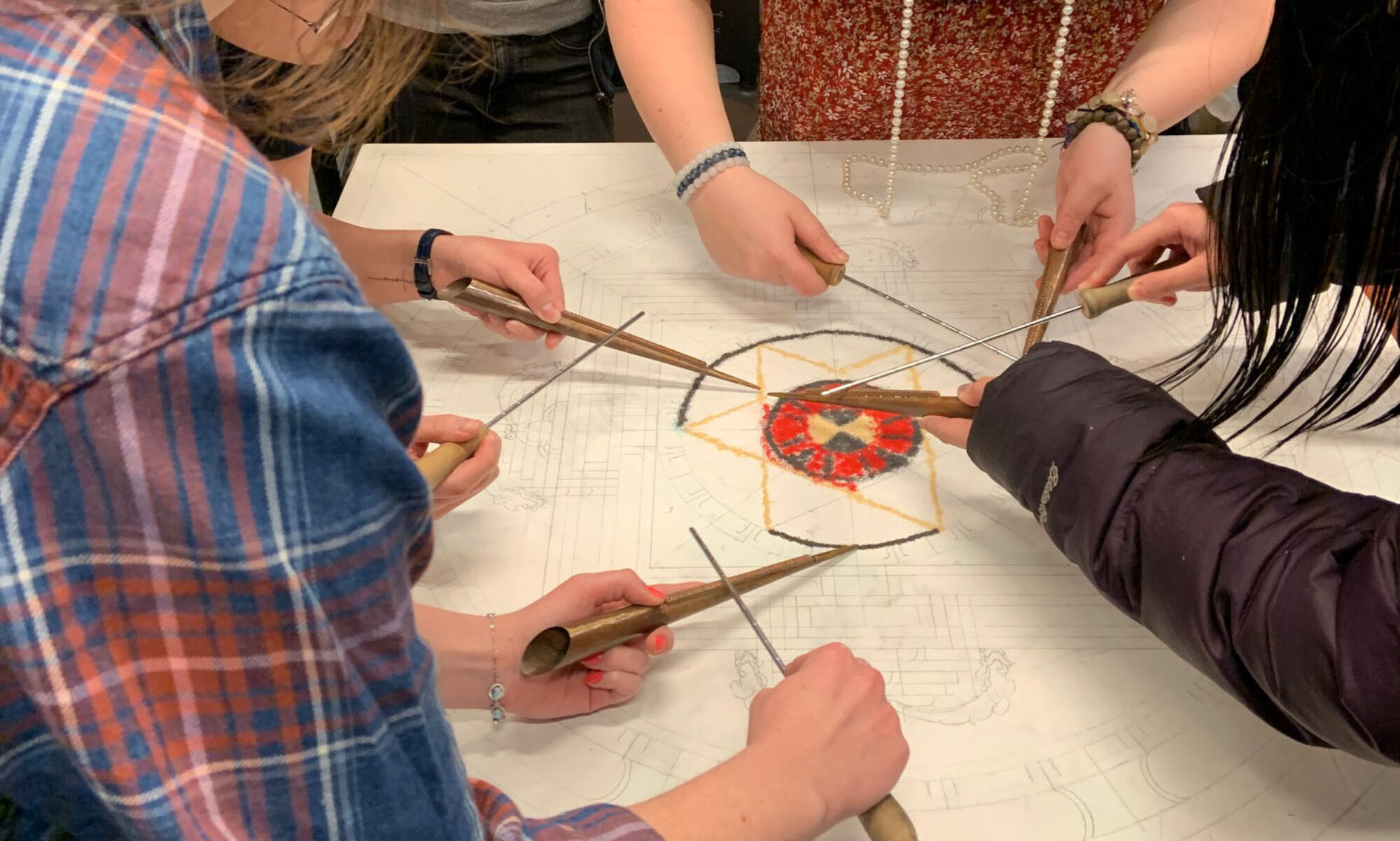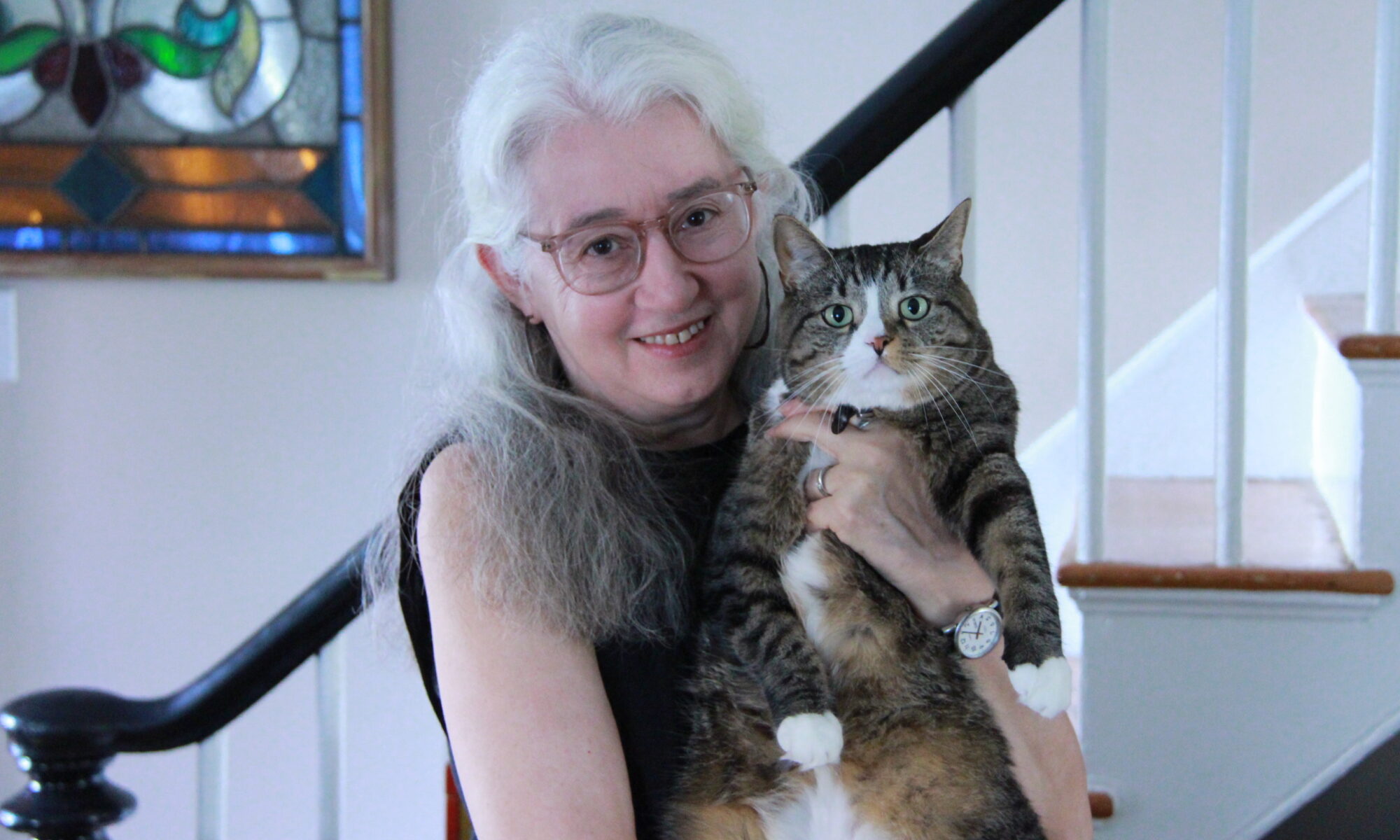Description
In this episode, Dr. Janet Gyatso discusses how she teaches her students about posthumanism and animal ethics in her courses on Buddhist Studies. She is the Hershey Professor of Buddhist Studies and Associate Dean for Faculty and Academic Affairs at Harvard Divinity School.
Quotes
“Part of what I’m trying to do is set aside all the mythology and ideology that we have and try to see animals for what they are.” Janet Gyatso
“One way of thinking about posthumanism is to stop assuming that humans are the most important and the best species on our planet.” Janet Gyatso
“We don’t only use our rational minds, we never only use our rational minds, we always are embodied, it’s only the question of what we can foreground and be aware of.” Janet Gyatso
Links and References (in order of appearance)
Gyatso, Janet’s book Apparitions of the Self: The Secret Autobiographies of a Tibetan Visionary. Princeton, NJ: Princeton University Press, 1998.
Donna Haraway on Wikipedia
Rosi Braidotti’s book The Posthuman. Cambridge, UK: Polity, 2013.
Dipesh Chakrabarty’s UChicago profile
Amitav Ghosh’s book The Great Derangement: Climate Change and the Unthinkable. Chicago: University of Chicago Press, 2017.
Eduardo Kohn’s book How Forests Think: Toward an Anthropology beyond the Human. Berkeley: University of California Press, 2013.
Jane Bennett’s book Vibrant Matter: A Political Ecology of Things. Durham, NC: Duke University Press, 2009.
Franz De Waal on Wikipedia
Carl Safina’s book Beyond Words: What Animals Think and Feel. New York, NY: Picador, 2016.
Barry Lopez’ book Of Wolves and Men. New York, NY: Scribner, 1979.
Robert Macfarlane on Wikipedia
My Octopus Teacher documentary on YouTube
Peter Singer’s book Animal Liberation: The Definitive Classical of the Animal Movement. New York, NY: Harper Perennial Modern Classics, 2009.
Christine Korsgaard’s book Fellow Creatures: Our Obligations to the Other. Oxford, UK: Oxford University Press, 2018.
Alice Crary’s book Inside Ethics: On the Demands of Moral Thought. Cambridge, MA: Harvard University Press, 2016.
Thomas Nagel’s article “What is it like to be a bat?” The Philosophical review 83, no. 4 (1974): 435–450.
Cows coming out after winter video on YouTube
James Rebanks (The Herdy Shepherd) on Instagram
Janet Gyatso on Harvard Divinity School website
Photographer: Kristie Welsh
Recorded on January 7, 2021; released May 13, 2021
How to cite in Chicago Style with notes and bibliography format:
- Sarah Richardson, “Janet Gyatso: Teaching Posthumanism and Animal Ethics in Buddhist Studies,” May 13, 2021, in The Circled Square: Teaching Buddhist Studies in Higher Education, produced by Betsy Moss, podcast, MP3 audio, 55:04, https://teachingbuddhism.net/janet-gyatso/.
Richardson, Sarah. “Janet Gyatso: Teaching Posthumanism and Animal Ethics in Buddhist Studies.” Produced by Betsy Moss. The Circled Square: Teaching Buddhist Studies in Higher Education, May 13, 2021. Podcast, 55:04. https://teachingbuddhism.net/janet-gyatso/.
How to cite in MLA:
Richardson, Sarah, host. “Janet Gyatso: Teaching Posthumanism and Animal Ethics in Buddhist Studies.” The Circled Square: Teaching Buddhist Studies in Higher Education, episode 16, May 13, 2021. https://teachingbuddhism.net/janet-gyatso/.

